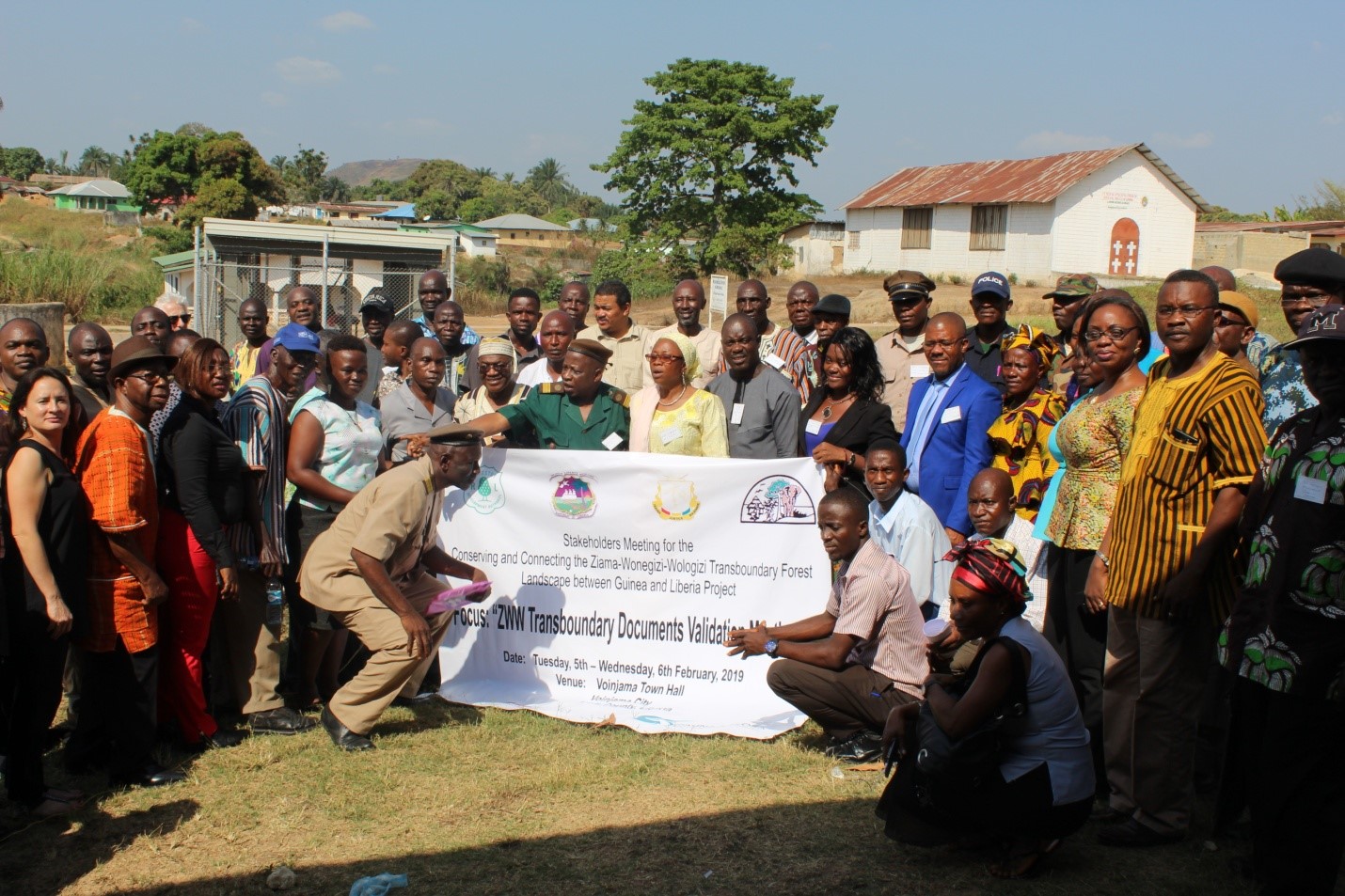By Tokpa Tarnue- tarnue82@gmail.com
Voinjama, Liberia- The governments of Liberia and Guinea are to shortly signed a bilateral framework agreement on the conservation and sustainable management of the Ziama-Wonegizi-Wologizi Transboundary Forest Landscape in Liberia’s northwestern Lofa County.
The decision follows a two-day validation meeting of two key instruments, which brought together 71 representatives from the both countries in Liberia Northwestern city of Voinjama from February 5-6, 2019.
According to the country manager for FAUNA & FLORA INTERNATIONAL (FFI) Dr. Mary Molokwo Odozi, the validation meeting was an opportunity for stakeholders of the both countries to review the drift documents and reflect on the work to date regarding the conservation and sustainable management of the ZWW landscape.
She said, the documents include an operational memorandum of understanding and a term of reference for the ZWW transboundary steering committee.
According to manager Odozi, the operational memorandum of understanding details how the Forestry Development Authority (FDA) and the CFZ will work together on the ground to implement transboundary management activities such as joint patrols, information sharing, awareness and other operational arrangements while the term of reference will define the purpose, structure roles and responsibilities of the steering committee. It will guide and monito transboundary management of the ZWW landscape.
The landscape is one of the largest remaining segments of the Upper Guinea Rainforest Ecosystem.
This initiative is expected to provide a platform for transboundary collaboration and coordination; to establish transboundary wildlife corridors, and foster dialogue for creation of a Peace Park in future.
This plan is also expected to sustain the landscape’s rich biodiversity for generations to come with a goal to positively impact hundreds of communities that depend on the forest for various uses and guide them in sustainably managing the landscape.
The landscape according to research holds biodiversity of global and local importance; there are several plant and animal species that are only found here.
However, more than 119,000 hectres of the forest is under threat from human incursion for agriculture, mining and logging, unplanned development and climate change.
Both countries are said to be face with similar threats to their forests and biodiversity, including forest degradation and habitat loss from agricultural encroachment and expansion, abusive and often illegal felling of wood for timber and wood energy, illegal and destructive mining and rampant, unsustainable hunting, all contributing to increased fragmentation of the habitats of threatened species such as elephants.
Besides bringing together officials of the Governments of Liberia and Guinea, the two-day meeting also brought together committed partners in the environmental field to review and adopt draft Terms of Reference and Memorandum of Understanding to formalize the partnership between the two countries.
These foundational processes will pave the way for concrete actions to halt and reverse the degradation in and around the ZWW Landscape.
Both documents were drafted in October 2018 at a preliminary planning meeting to prepare for this bilateral meeting.
The Ziama-Wonegizi-Wologizi forest is home to more than 25% of Africa’s mammals, including flagship species such as the critically endangered western chimpanzee, the endangered and endemic (in the forests of Liberia, Guinea, Côte d’Ivoire and Sierra Leone) pygmy hippopotamus.
The forests of Guinea and Liberia have declined immensely from continued forest clearance. Guinea’s forests areas decreased by about 33% to only 444,000 hectares between 1975 and 2013 and Liberia’s forest cover recorded a decrease of 12.2% (600,000 ha) between 1990 and 2010 alone.
The transboundary effort and commitment along with ongoing activities on both sides of the border show promise that by working together, Guinea and Liberia can ensure that their shared natural heritage and that of West Africa will be around for the benefit and enjoyment of generations to come. The initiative is a five year funded program by the United States Agency for International Development (USAID) through the West Africa Biodiversity and Climate Change (WA BiCC) Program.

